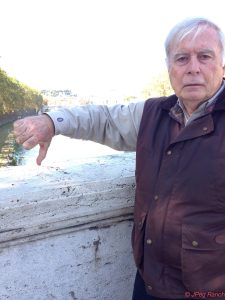Sunday, June 18, 2023 Fareed Zakaria on his CNN show, The Global Public Square, introduced a segment about the United States Supreme Court by stating, “The Supreme Court is supposed to be the ultimate, safeguard of our democracy, but has the Supreme Court itself become a danger to our democracy? Is the Court today acting as a defender of democracy or a threat to it?”
Fareed’s guest was Michael Waldman of the Brennan Center for Justice at New York University. Waldman’s book, How the Supreme Court Divided Our Country, sets forth a central thesis: nine unelected, life-tenured people on the Supreme Court hold too much power for too long and they have become “very, very activist and extreme in their rulings”. Waldman’s position, and mine, is that the U.S. Constitution was designed to adapt to changes in our society and it is critical that the Supreme Court change also.
Zakaria and Waldman advance the idea that the justices’ terms should be limited, Waldman suggested a one-term term of eighteen years. I have long called for term limits for all federal judges plus revamping their selection process to popular elections, not appointments that involve only the president and the senate. I think eighteen years is too long. I suggest if our elected president can only serve eight years that a ten- or twelve-year term for judges is reasonable.
In order to encourage people to run for federal judgeships it seems to me it is in the country’s best interests that once a judge has served her or his term the retired judge continue to receive all pay and benefits during their lifetime as long as they do not seek another judicial position.
Judicial offices could appear on the normal ballot as a non-partisan position as needed. There should be minimum qualifications required, such as graduation from an accredited law school, passage of a national Bar Examination, an age of at least 35, the same as the president, and a clear record as to ethical matters. As in all contested elections the relative merits of the judicial candidates could be brought out by the candidates themselves, their supporters, their opponents and the media.
Surely when our Supreme Court is being accused of “holding too much power for too long” and of being “a threat to our democracy”, it is essential we make some fundamental, Constitutional adjustments. America may not yet be on the brink of disintegrating into legal and political chaos, but when that possibility is bantered about blithely on Sunday news programs, it is time to act.





